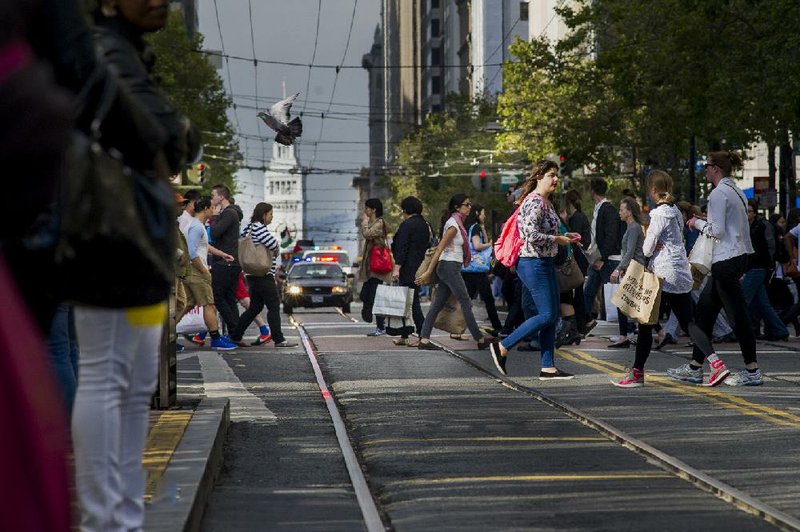WASHINGTON -- U.S. business economists have sharply cut their growth forecasts for the April-June quarter and 2014, though they remain optimistic that the economy will rebound from a dismal first quarter.
A survey by the National Association of Business Economics, released Friday, found that economists expect, on average, growth of 3 percent at an annual rate in the second quarter. That's down from 3.5 percent in a June survey. Growth in 2014 as a whole will be just 1.6 percent, they project, sharply below a previous forecast of 2.5 percent.
The lower 2014 forecast largely reflects the effect of a sharp contraction in the first quarter. The economy shrank 2.9 percent at an annual rate, the biggest drop in five years. That decline will weigh heavily on the economy this year, even if growth resumes and stays at 3 percent or above, as most economists expect.
The economists reduced their second-quarter forecast largely because they expect consumers spent at a much more modest pace. They now expect spending will grow just 2.3 percent at an annual rate in the second quarter, down from a 2.9 percent estimate in June. Spending rose just 1 percent in the first quarter, the smallest increase in four years, a sign consumers are still reluctant to spend freely.
The economists conducted a special survey after the government announced the dismal figures at the end of June. The group typically surveys economists quarterly.
Despite the downgrades, the survey highlights the fact that economists are mostly optimistic about the rest of this year. Analysts largely blame the first-quarter shrinkage on temporary factors, such as harsh winter weather and a sharp slowdown in inventory restocking. When companies restock their inventories at a weaker pace, it slows demand for factory goods and lowers production.
Jack Kleinhenz, president of the association and chief economist at the National Retail Federation, said most other recent economic data, particularly regarding hiring, has been positive. Employers have added an average of 230,000 jobs a month this year, one of the best stretches since the recession.
In addition, consumers are more confident, and government spending cuts and tax increases are exerting less of a drag. In 2013, a Social Security tax cut expired and government spending cuts were implemented. The combined effects slowed growth by 1.5 percentage points, some economists estimate.
"Many of the fundamentals are there for growth," Kleinhenz said.
As a result, the 50 economists who responded to the survey see the chances of a recession this year or next as pretty low. Sixty percent said the odds were 10 percent or lower, and more than 90 percent said they were 25 percent or lower.
Economists surveyed by Bloomberg predicted growth exceeding 3 percent over a nine-month period.
Gross domestic product will expand 3.1 percent from July through December after a 3.3 percent advance last quarter, according to the median forecast of 74 economists polled from July 3 through July 9. It would be the first time since 2004- 2005 that GDP has sustained such gains over an extended period.
"We're in an environment where I don't see any major head wind," said Ethan Harris, co-head of global economics research at Bank of America Corp. in New York. "I see minor challenges. So things are aligned for better growth."
Consumers probably will be buoyed by an improving job market and gains in stock prices, economists in the survey said. Business confidence will get a lift from less political brinkmanship, driving investment at the same time state and local government agencies are poised to increase spending.
The economic momentum will carry over into 2015, making it the strongest year in a decade, even as the growth rate for all of 2014 is held back by the first-quarter slump, the survey showed.
Information for this article was contributed by Michelle Jamrisko and Catarina Saraiva of Bloomberg News.
Business on 07/12/2014
